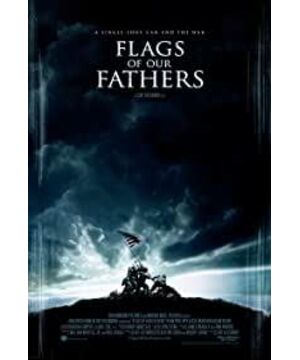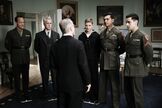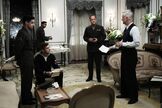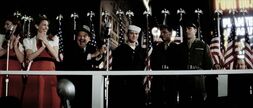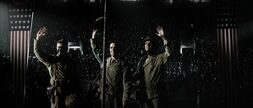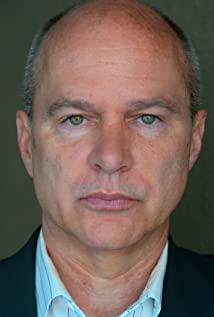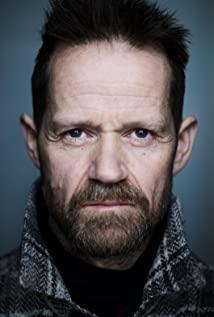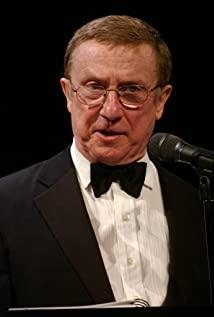After watching it, I was a little shocked and speechless. The last time I saw a contradiction to the audience was the giant part 3 and 4; the first of this movie is: the anti-fascist war and personal contradictions - war always requires people to fight, sacrifice is In order to save more people, but from a personal perspective, what would you do in the face of death. From this, the audience can think of similar anti-war conclusions.
Then there are the heroes expected by the public, and the contradictions between the heroes themselves and their own thoughts. Here, there are more differences between the two positions: the public will definitely deify the heroes when they see their bloody battles and victory—because of these sacrifices and victories, the public thinks Do not dare to do and can't do it, so deified as a hero (not derogatory); and the hero himself: the answer is also given in the movie, the original intention is to defend the family and the country, but on the battlefield, it is more a battle for life and death Friendship, they value the dead comrades on the battlefield more than the glory won, not to mention the dead people should be heroes. From this, the audience can think of a conclusion similar to anti-heroism.
Finally, there is the contradiction between the politicians selling war bonds and the protagonists who do not want to publicize them: the politicians cannot sell the bonds and make equipment to win the anti-fascist war without publicity, while the protagonist's comrades are still fighting on the front line, and he and the politicians are in a stable The contradiction behind the "flowers and wines" is very unpleasant.
Of course, there are also American characteristics: anti-racial discrimination, after the Indian protagonist returned to the motherland, he was still discriminated against not being shaken + entering the restaurant. Of course it does not belong to the contradictory narrative.
Giant also created a lot of contradictory plots by adding a bunch of settings-is it time to sterilize or draw pictures of others, etc. After giving the audience "space, reason, and motivation" to think about, as long as it's not too bad, The works will appear very deep, after all, there is no lecture on the head.
View more about Flags of Our Fathers reviews


